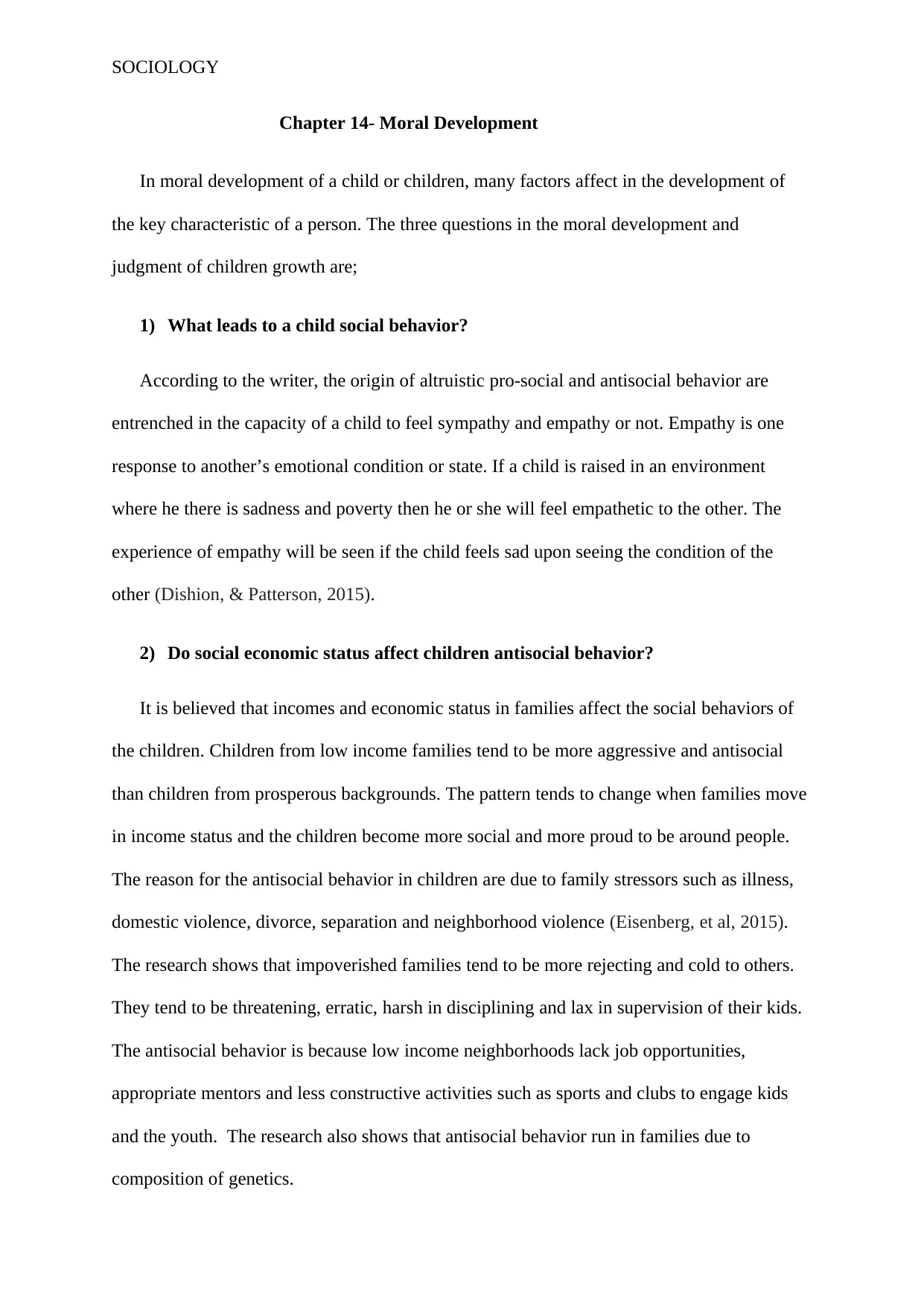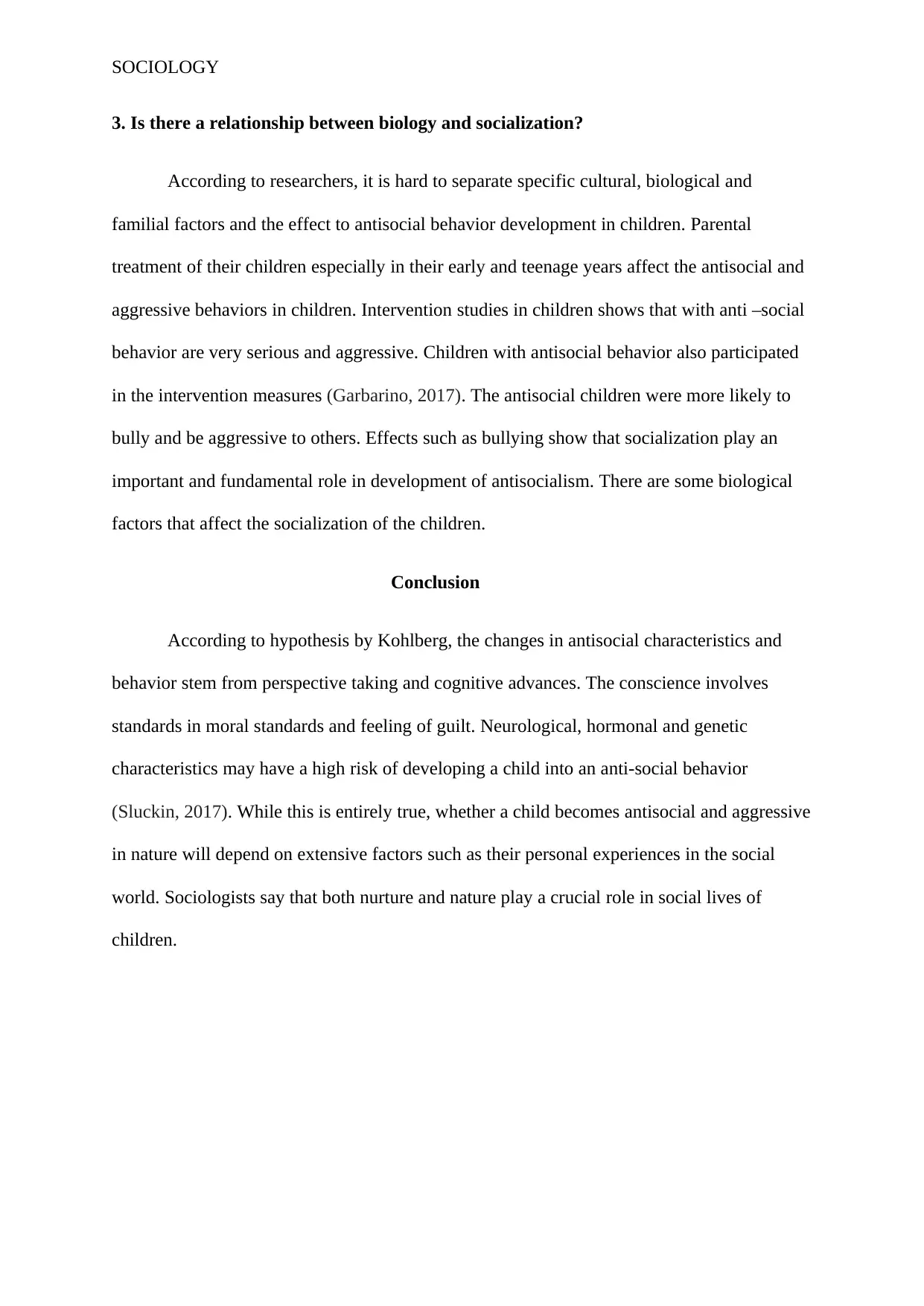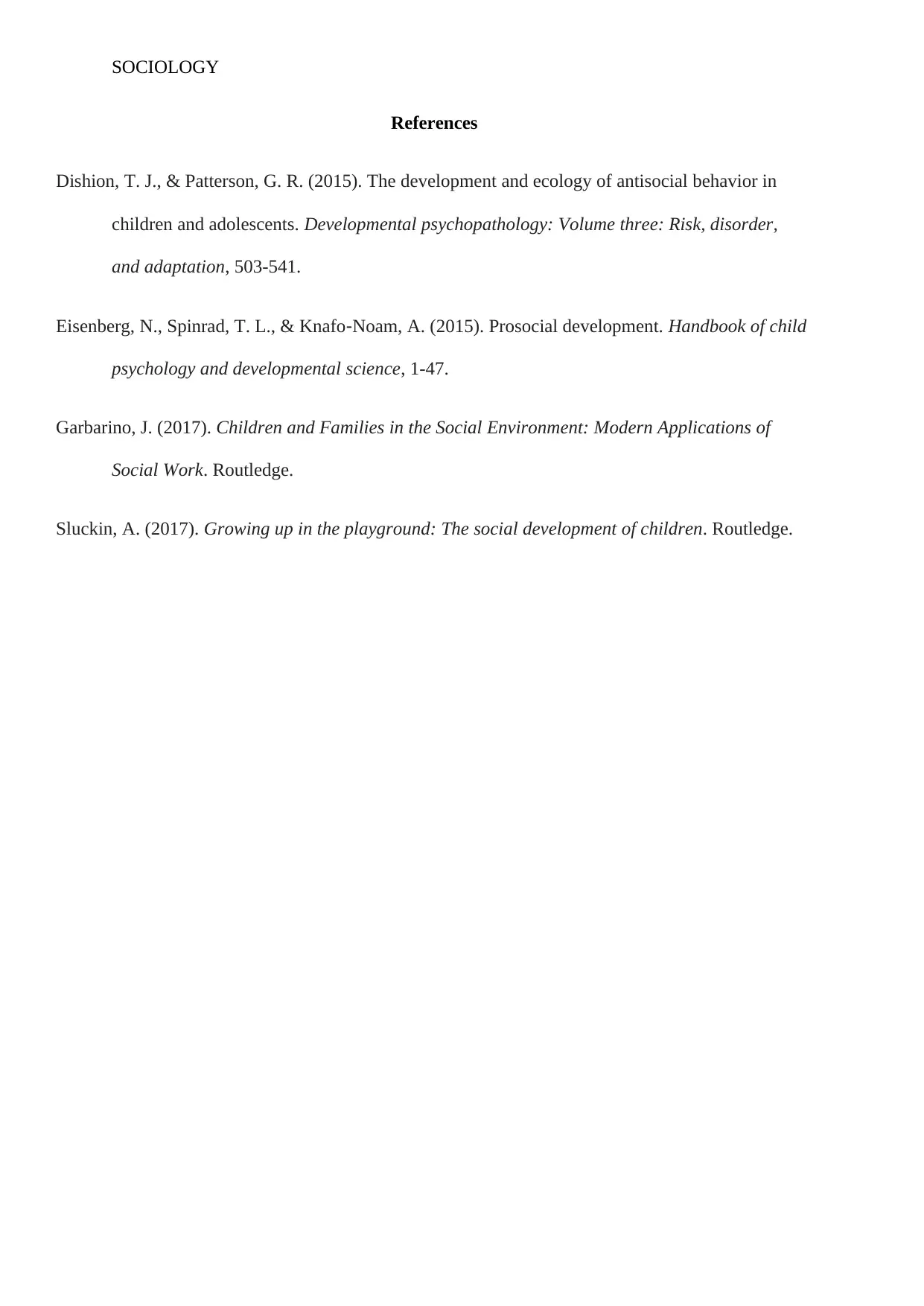Sociology Assignment: Moral Development and Social Factors
VerifiedAdded on 2023/04/21
|4
|709
|74
Homework Assignment
AI Summary
This sociology assignment delves into the multifaceted realm of moral development in children, examining the interplay of various factors that shape their behavior. The assignment explores three key questions: the origins of children's social behavior, the impact of socioeconomic status on antisocial behavior, and the relationship between biology and socialization. The document highlights the role of empathy and sympathy in the development of pro-social and antisocial behaviors, with emphasis on how a child's environment influences these traits. It further investigates the correlation between family income, stressors (such as domestic violence and neighborhood violence), and the propensity for antisocial behavior. The assignment also examines the complex interaction between biological predispositions, parental treatment, and socialization processes, which can affect the development of antisocial tendencies. The conclusion emphasizes the crucial roles of both nature and nurture in shaping a child's social life, providing a comprehensive overview of the factors influencing moral development and its implications.
1 out of 4










![[object Object]](/_next/static/media/star-bottom.7253800d.svg)